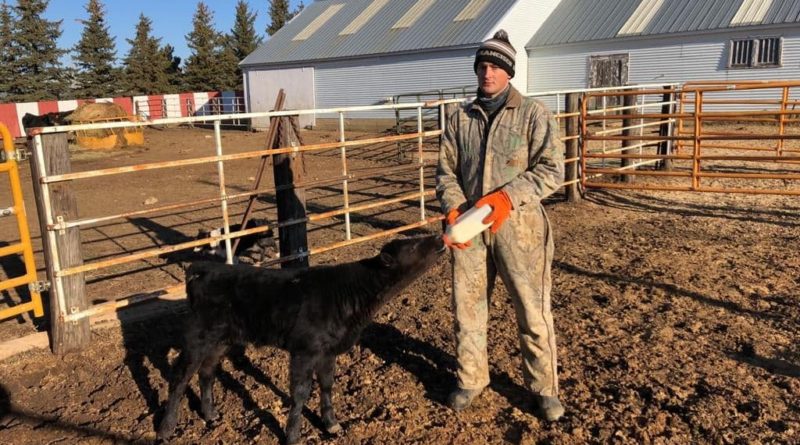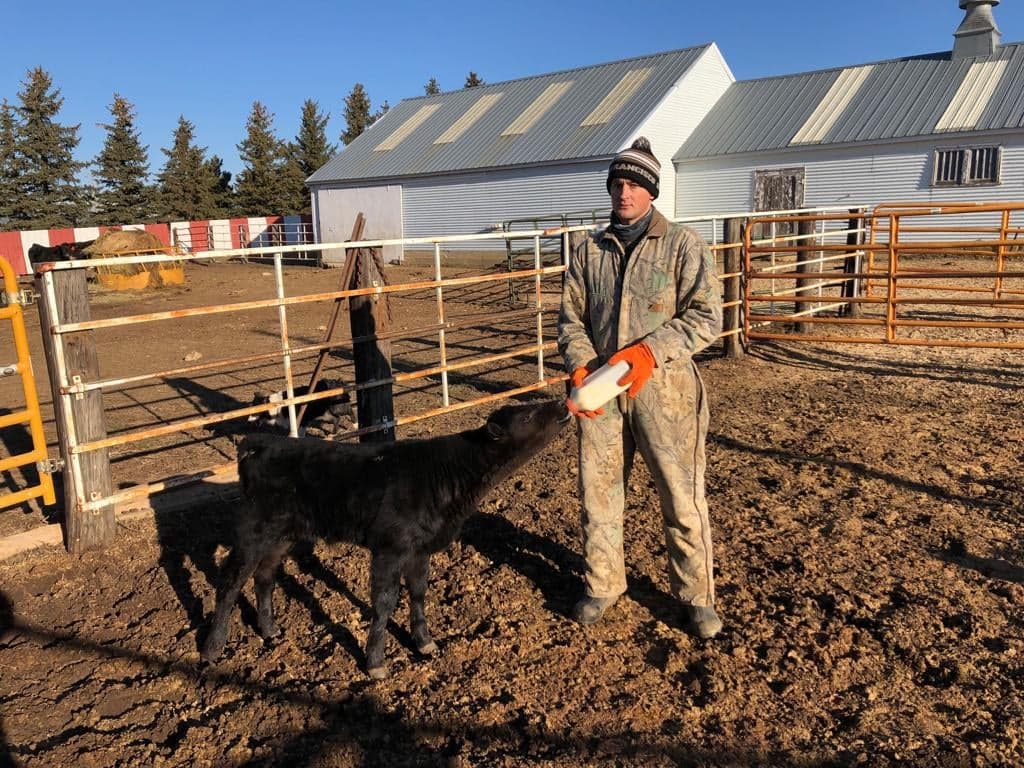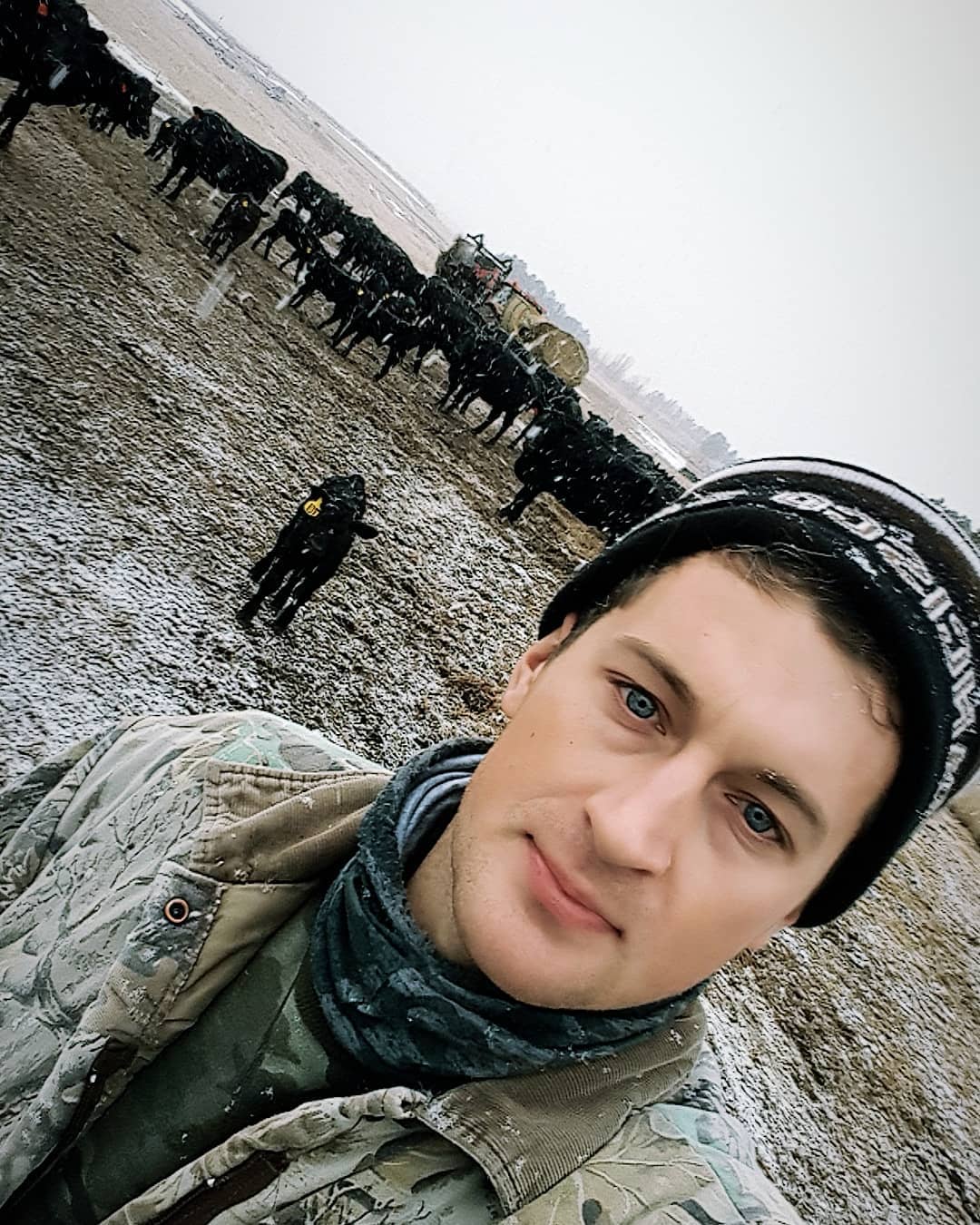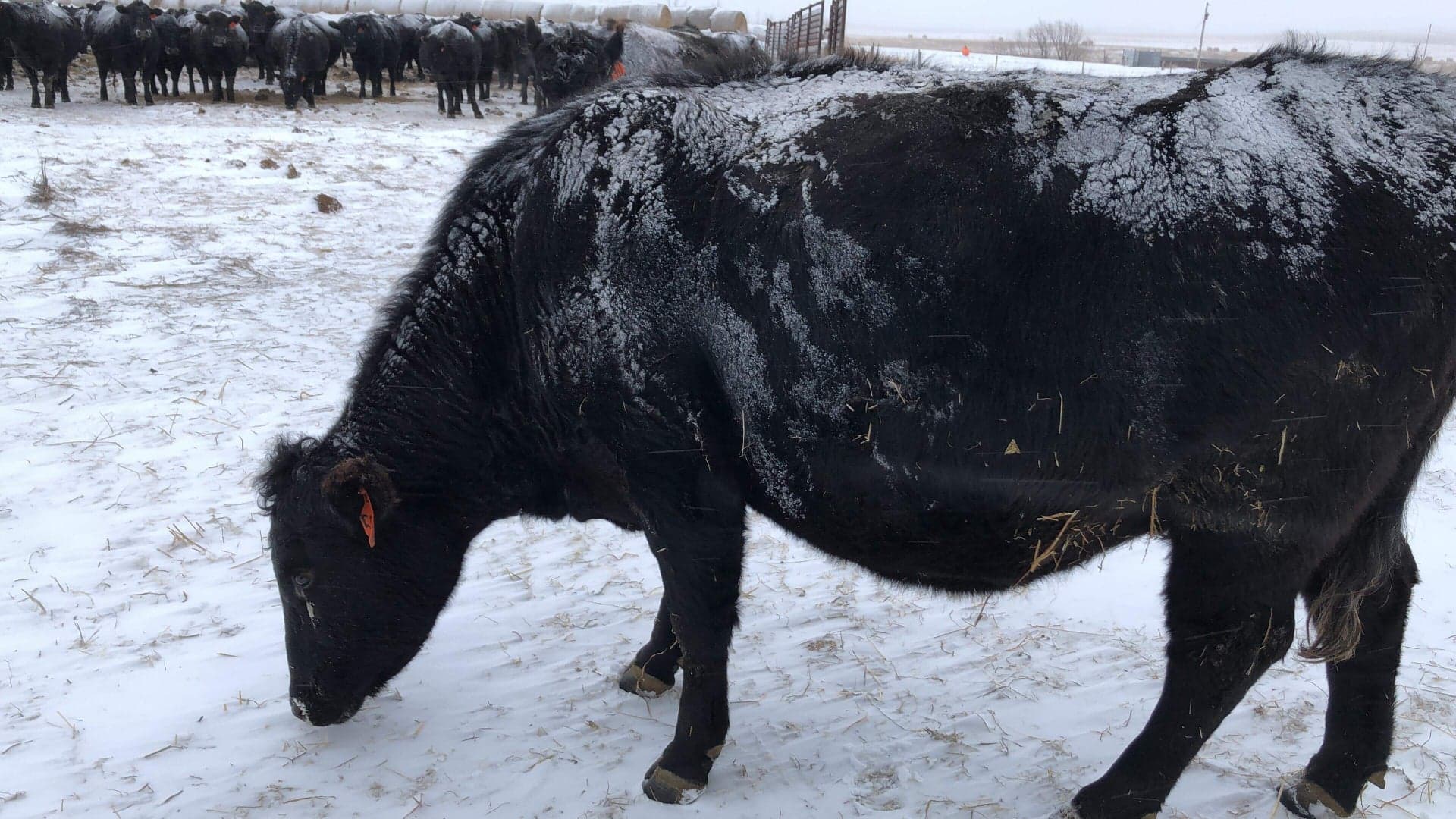Spring Calving Recap with CAEP Alum Diego Welzel
As farmers are wrapping up spring calving in North Dakota, we recently caught up with cultural exchange alum Diego Welzel who completed his CAEP agricultural training program on a ranch in North Dakota back in 2018.
“We began the calving preparation roughly two weeks before the first labor. We prepared the barns by making beds of wheat straw. The straw must be changed when it is very humid or as needed. We also checked the cows every two hours in the intense cold or ever three hours with good temperatures. We have a spreadsheet from our veterinarian indicating a birth forecast obtained by ultrasound testing. This allows us to know when the approximate date of delivery and if the cow was pregnant. After birth, the calf and cow are kept together until the time of the sale at approximately seven months.
Calves are vaccinated, marked and castrated when they arrive and are kept for approximately five days in the barn or until they are strong enough to face the snow. On the ranch I was training at, the births began in February with 16 calvings in one day. We had a total of 215 pregnant cows with only eight labor complications. The climate was very difficult as well with temperatures dropping to -22 Fahrenheit with many snowstorms.
My training was very broad as I learned about calving, treatment, diseases, medication, management of pastures, and sales. My host taught us everything and was always present. I accompanied him when he went to the city to buy or do business sales. Of course, besides working with cattle, we also worked with machines and equipment to make hay bails, planting, spraying, harvesting, and I worked with high technology machines.
Life on a cattle ranch is not easy as it requires a lot of attention and commitment, but it allows for good learning and a great place to work and to improve my English. The dialogue was constant which makes my English better every day.”
If you are interested in gaining hands-on experience on a ranch and expanding your knowledge in the fields of agriculture, visit our website www.caep.org to apply!




